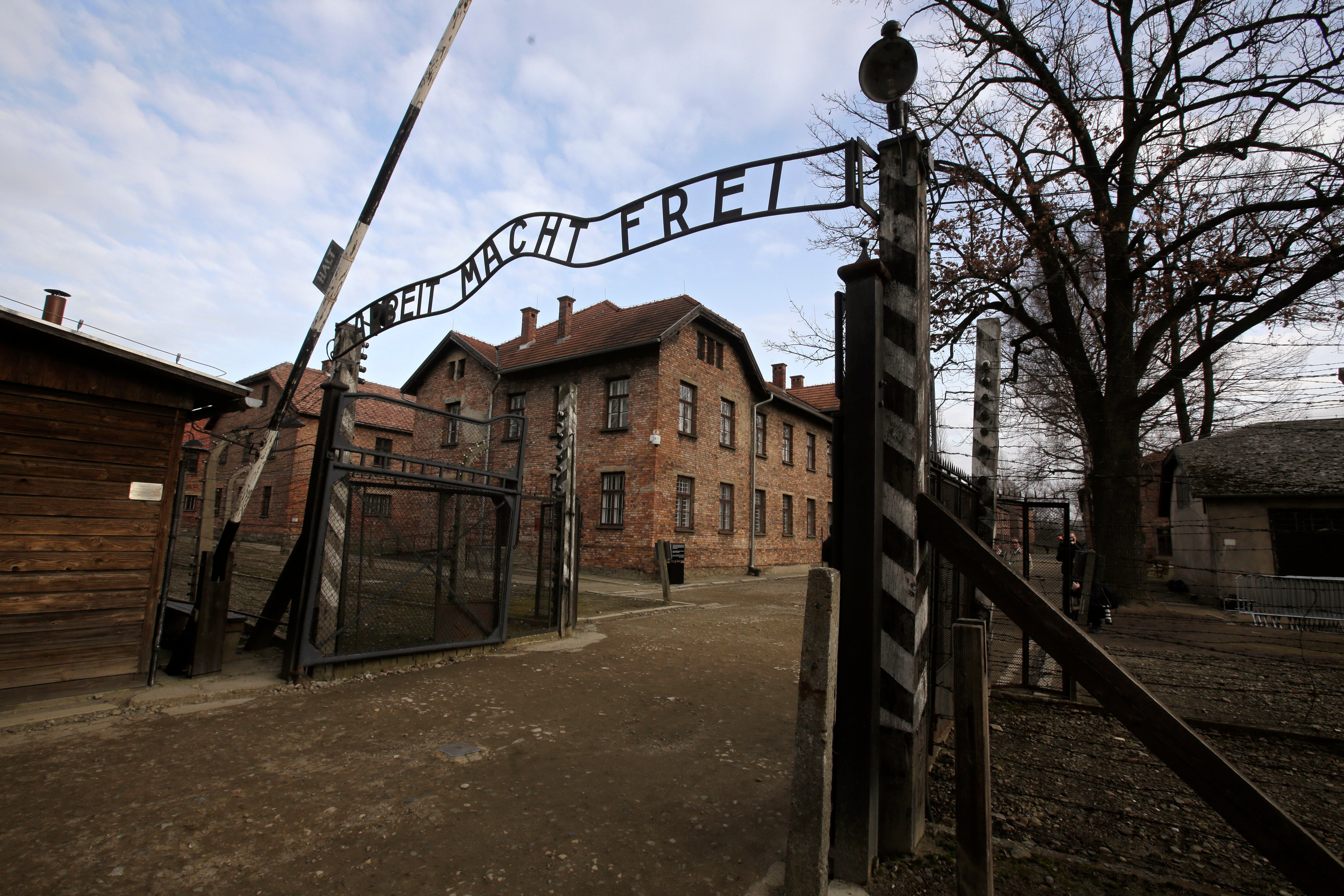Graffiti in English and German found on Auschwitz barracks
Police and prosecutors in southern Poland are investigating graffiti in English and German that appeared on multiple buildings at the Auschwitz-Birkenau Museum, the site of the former Nazi German death camp

Your support helps us to tell the story
From reproductive rights to climate change to Big Tech, The Independent is on the ground when the story is developing. Whether it's investigating the financials of Elon Musk's pro-Trump PAC or producing our latest documentary, 'The A Word', which shines a light on the American women fighting for reproductive rights, we know how important it is to parse out the facts from the messaging.
At such a critical moment in US history, we need reporters on the ground. Your donation allows us to keep sending journalists to speak to both sides of the story.
The Independent is trusted by Americans across the entire political spectrum. And unlike many other quality news outlets, we choose not to lock Americans out of our reporting and analysis with paywalls. We believe quality journalism should be available to everyone, paid for by those who can afford it.
Your support makes all the difference.Police and prosecutors in southern Poland are investigating graffiti in English and German that appeared on multiple buildings at the Auschwitz-Birkenau Museum, the site of the former Nazi German death camp.
A museum guard found the graffiti Tuesday sprayed on nine wooden barracks in an area where there is no closed circuit television monitoring, museum authorities said. Police said they were seeking the person or people responsible for vandalizing a historic object, a crime that carries a prison sentence of up to eight years.
Court experts will determine if the content of the graffiti is antisemitic, according to Malgorzata Jurecka, a police spokesperson in the town of Oswiecim. If they decide it is, the perpetrators also could face hate crime charges punishable by three years in prison.
Museum officials characterized some of the graffiti as antisemitic and echoing phrases used by Holocaust deniers. They have appealed to witnesses for help in the investigation.
Officials from museum and Israel's Yad Vashem Holocaust memorial condemned the vandalism as an affront to the memory of the 1.1 million people who are believed to have died at Auschwitz-Birkenau, which Nazi Germans operated in occupied Poland during 1940-1945. .
“This incident, at such a major and significant site of the atrocities of the Holocaust, constitutes an attack not only on the memory of the victims, but also on the survivors and any person with a conscience,” Yad Vashem Chairman Dani Dayan said in a statement Wednesday.
"It is also yet another painful reminder that more must be done to raise awareness about the Holocaust and to educate the public and the younger generation regarding the dangers of antisemitism and Holocaust denial and distortion,” Dayan said.
Some 1.1 million people, mostly European Jews but also Poles, Roma, Soviet prisoners of war and others died in the gas chambers or from hunger, disease and forced labor at Auschwitz-Birkenau.
The site was turned into a museum and memorial not long after World War II ended. In 2019, before the coronavirus pandemic, it had more than 2 million visitors.